In 2012, CBC Radio's This is That program reported on a controversial new bylaw: dogs in Montreal would be required to understand both French and English. Chaos was reigning in the city's dog parks, and confusion in communication was the cause. With some dogs responding to English commands and other to French, mandated dog bilingualism was the only solution to the problem, said a city official.
They speak French. Some of them send their children to French schools to preserve their language. They have their own flag, their own culture, and their own history.
They also live in Saskatchewan.
The Fransaskois may not have the numbers that the Quebecois or even the Franco-Manitobans, but they are still an important part of Saskatchewan's history. The province has small settlements and hamlets that are entirely francophone as well as towns and cities that have sizeable, sometimes majority, Fransaskois populations. Everywhere the Fransaskois are, they celebrate their language and unique origins as proudly as any Quebecois.
Je suis un oiseau.
Ni l'abeille, ni la baleine.
Il mange une abeille.
I'm not sure when I'll be using those phrases, but if Duolingo is trying to make learning French memorable, it has succeeded. When I picked up the app, I wasn't expecting much--there was no way an iPhone app could teach me a language I had no knowledge of. Two months of using Duolingo later, I'm willing to admit I was wrong. While it's not a substitute for classroom learning, Duolingo is a useful way to start learning a language on your own time and at your own pace.

Sam and Simon
The thirties are a strange time, a sort of limbo between not being old enough to be considered middle-aged and not quite young enough to be considered...well, young. However, they are thought to be the time when an individual attains maturity and stability in most areas of life, or so we like to think. Ces gars-là, roughly translated as "Those Boys," follows the lives of two quirky bachelors in their thirties as they chase highs and experience lows in the metropolis of none other than Montréal. The show has been a surprising hit on the relatively minor V network, attracting 500,000 viewers in its first season, and was renewed for a second season which debuted last February. It breaks ground in Quebec television through its realistic representation of life in Montreal, such as the pervasive use of anglicisms in everyday French speech, as well as the evident presence and influence of multiculturalism and bilingualism throughout the city. Despite its raunchy and occasionally over-the-top brand of humour, the show is nonetheless thoroughly entertaining thanks to its original characters, plot and dialogue.
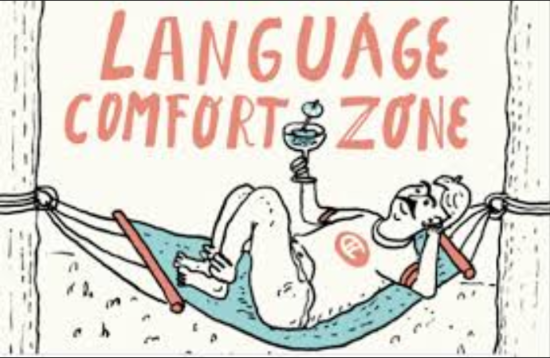 Image Source: www.montrealgazette.com
Image Source: www.montrealgazette.com
Code-switching is generally identified as the alternation between two or more languages within one conversation or context. Many factors contribute to the phenomenon and just as many reasons underlie it. On a smaller scale, code-switching is primarily generated by the propinquity of two or more languages that are either all official or spoken by a vast majority of people within one community.
Montreal, being a mutilingual city where French and English are dominantly in use, is an example par excellence of such a community. The ease with which Montrealers switch from one language to the other in the same conversation, and for no apparent reason, may very well stump foreigners who are unfamiliar with the local linguistic overlap. Some qualify the phenomenon of code-switching as a sure testimony to a person`s high IQ--the capability to juggle a couple of languages within the space of a single utterance seems impressive. It is even acknowledged that, more often than not, people code-switch for an added stylistic effect, for the sake of variety so to speak, and not because they have a poor command of their native language.
Given the many language policies affecting the status of French and English over the course of Quebec`s history, Anglophones and Francophones have oftentimes found themselves at daggers drawn as regards language prevalence and prestige. It is important to note that the latter is only a superficial issue; the bottom part of the iceberg is all about identity and the way the two lingusitic groups position themselves based on their attitude towards either English or French specifically and bilingualism within the country in general.
Bon Cop, Bad Cop is a 2006 bilingual Canadian R-rated buddy cop film from Alliance Atlantis Vivafilm starring Canadian actors Patrick Huard and Colm Feore. Directed by French-Canadian Eric Canuel and shot totally in Canada, Bon Cop, Bad Cop boasts Canadian humour, locations, and references. With the plot set in both Ontario and Quebec, the film divides its lines between French and English, sometimes rapidly switching between the two mid-line. Subtitles were supplied for separate Anglophone and Francophone versions on release, making the movie accessible to all audiences. While some jokes fall flat as the tone of the movie wears on in the last act, overall Bon Cop, Bad Cop is an enjoyable (if raunchy) watch.
Language has long been a contentious subject of debate in Quebec. Since the earliest days of British colonization, French Canadians have fervently resisted assimilation into the anglophone majority, which eventually gave birth to the nation's defining policy of official bilingualism whereby English and French have equal status in Canada. Despite the federal government's efforts to satisfy the linguistic needs of every citizen, the Quebec government saw it necessary to protect the language rights of Quebecers, as well as the integrity of the language itself. One such safeguard was establishing the Office québécois de la langue française which, over the years, has gained notoriety due to its perceived overzealous enforcement of Bill 101. The prevalence of such incidents has led many nowadays to believe that the OQLF has outlived its usefulness and relevance. To determine the reality of this attitude, the factors that gave rise to the Office must be weighed against its present role in Quebec society.
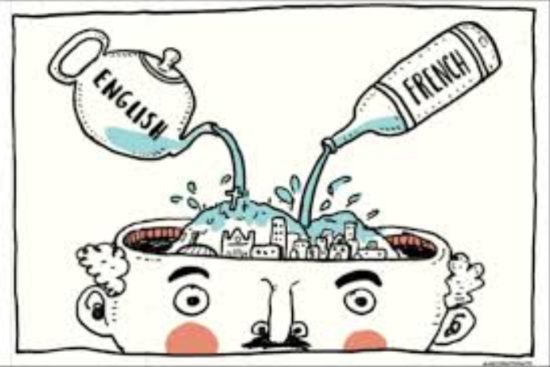 Image Source: http://www.montrealgazette.com/news/frenglish/passion+local+language+Meet+some+people+have+become/7591482/story.html
Image Source: http://www.montrealgazette.com/news/frenglish/passion+local+language+Meet+some+people+have+become/7591482/story.html
The evolvement of translation in Montreal has an intriguing history, featuring some amusing anecdotes pertaining to the evolution of the city`s first "dragomans". And it is important to note that being bilingual is not at all equivalent to being a quality translator; nor is it necessarily conducive to it, especially in the context of Montreal.
Put simply, when two languages overlap as much as English and French do in Montreal, there is plenty of room for such insidious things as calques, anglicisms and gallicisms (to name but a few) to creep in and yield negative impact on the quality of a translation. The usage of certain terms is always a bone of contention among language practitioners. For example, some of the first famous French-Canadian translators and interpreters would often "accuse" each other of using random anglicisms! That, however, did not at all mean that some of them were less professional than others; rather, it is testimony to the presence of a continuous anglo-franco fusion dating back to the dawn of the translation industry in Montreal.
By Alix Fraser
Visit any of Montreal's bustling markets and you'll hear a rich mix of languages unlike nearly anywhere else in Canada. Citizens of the city often boast bi- and trilingual knowledge, slipping in and out of their languages with ease. For monolingual residents, be they new Anglophone students, immigrants, young Francophones, or otherwise, the multilingual climate can be intimidating.
Though formal classes are offered at schools and centres all over the city, the best way to learn a new language is with hands-on experience. In a multilingual climate like Montreal's, all is not lost for those of us seemingly stuck in our monolingual funk. Learning a second language is an invaluable asset in today's connected world.
There are dozens of groups created for the sole purpose of giving new language learners a chance to practice their skills and stretch their conversational skills. The biggest practice group in Montreal is Le MEETUP de conversation Français-Anglais, boasting more than 6,380 members and over eight years of history.
It goes without saying that learning a foreign language, like practically any other cognitive experience, falls into two categories: obtaining the necessary theoretical knowledge and putting all the acquired material into practice, ideally, combining the two all along. While most mentally healthy people may have no or little difficulty mastering the first part, they may find the second one a trifle trickier - especially if they are not surrounded by the language as they are learning it. Furthermore, practising a language may be quite a stumbling block even if you are surrounded by native speakers. That is the case if you spend most of your time within your family or a close circle of friends, who all belong to the same ethinicity as yourself, and spend far less time among representatives of the country you have come to. As a result, you may feel uncomfortable and lacking self-confidence when you have to speak in the presence of native speakers, albeit your theoretical linguistic knowledge and lexical arsenal are second to none.
Also, it is important to note that what you learn in theory might well at least slightly differ from the way native speakers express themselves in reality. Accent, word choice, and other minor nuance-related language peculiarities inherent in the speech of natives of the region you have come to may turn out to be different to the ones you have come across earlier. The linguistic adjustment can thus be quite puzzling.

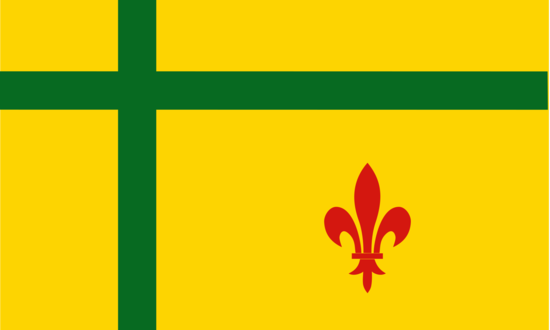
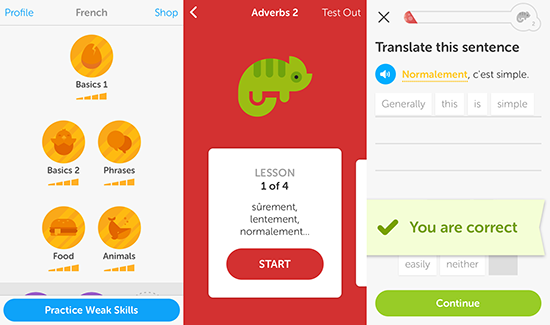


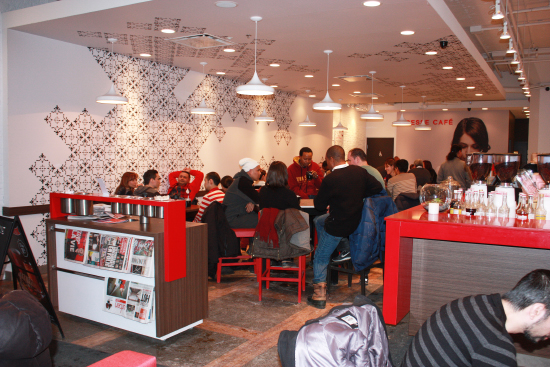
Recent Comments